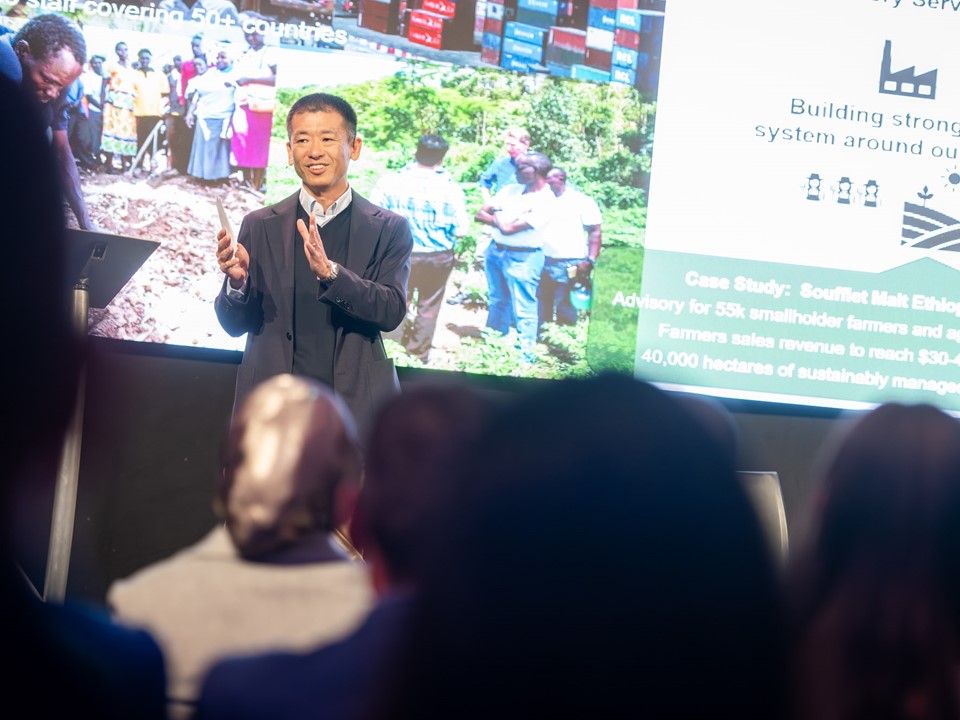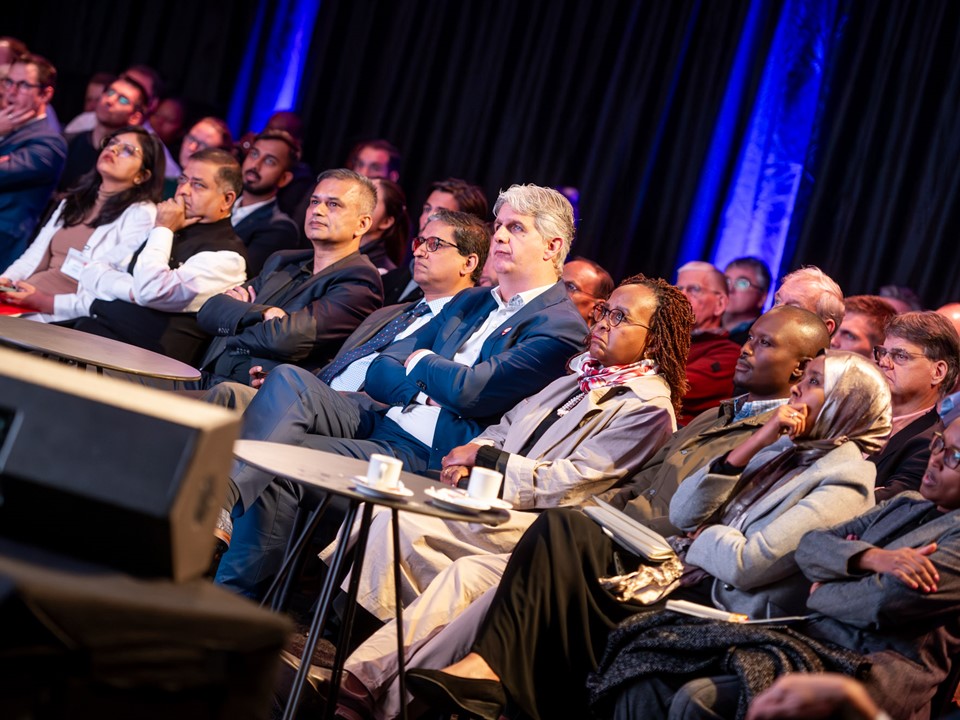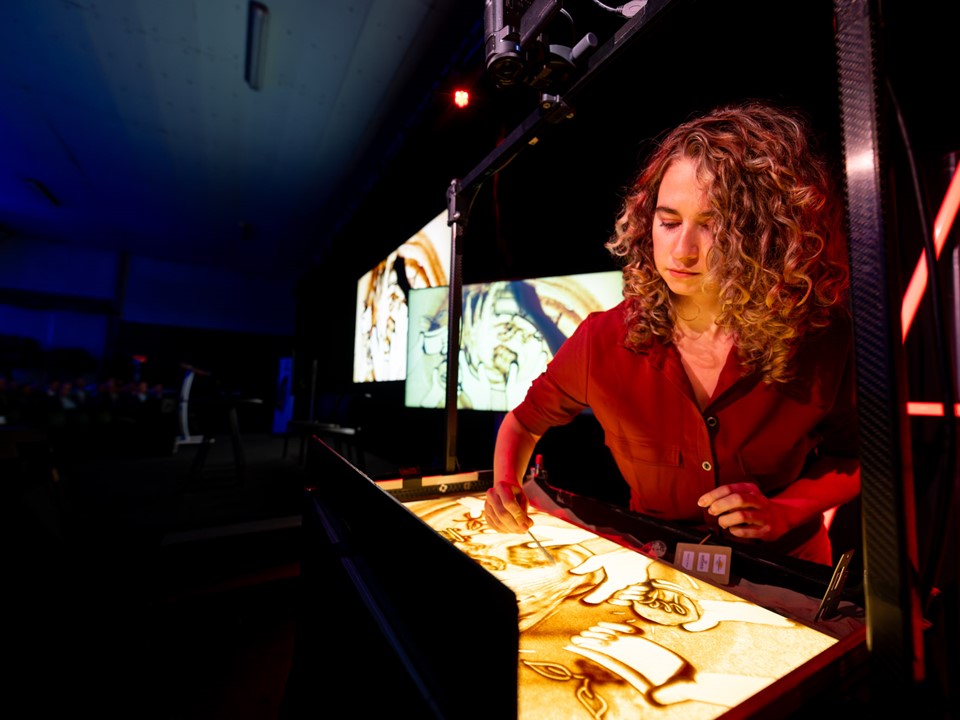Emerging markets, food system finance

Emerging markets, food system finance
Yosuke Kotsuji is an emerging market investment professional who focuses on Agribusiness at IFC, a member of the World Bank Group. He grew up on a small Japanese rice farm. As a new business manager, he has been focusing on scaling IFC’s agribusiness program in Africa to strengthen food security and farmer incomes, working in close collaboration with key internal and external stakeholders. At our symposium, Yosuke explained that – in order to move forward - funding is essential. Local funding, however, often proves complex. How can sustainable change be achieved?

IFC and The World Bank
I currently work for the IFC Agribusiness team in Africa. IFC is part of the World Bank. The World Bank finances government public sector projects, infrastructure and education projects. IFC focuses on private sector investment and technical assistance. I lead the agribusiness investment team for the African continent and I have lived in Senegal, Kenya and now in South Africa. As the Kenyan ambassador said, it's a really diverse continent, so every day is very enjoyable and new.
About our business: IFC invests from farm to fork, imports seed fertilizer and we also invest in primary production, livestock, dairy and in commodity training and food processing, all the way through to restaurant chain and retail segment. We have an approximately billion-dollar portfolio throughout the continent. We're still a small team, with about 50 people, around 25 investment people and 25 advisors. In terms of investments, we mainly do debt and equity mezzanine financing and we sometimes work with local banks to finance farmers and personally guarantee that portfolio.
Real goal: creating agricultural industry cluster/ecosystem
Actually, our real goal is to create an agricultural industry cluster or ecosystem around our investee clients. I'll give you an example. In Ethiopia, we invested in a moulding factory, obviously the ingredient for beer. Ethiopia used to import lots of finished mould, but we wanted to substitute imports, so we invested with a European investor for the factory, but a barley supply chain was needed to supply the factory. Our technical assistance team worked with about 50,000 farmers in the Amhara region. Better seed access, good agronomic practices, working with trainers to provide training. Altogether, we managed to help farmers to double their yield and then basically that resulted in an approximately 30 to 40 million-dollar import substitution of the mould. Obviously, that wealth trickled down to the farmers and then the farmers managed to reinvest in the farm, or pay school fees, or do something for the village. Building that sort of ecosystem is our goal and also our bread and butter.
IFC and Africa
IFC has about 60 clients throughout the African continent, but I have to say, this is still a drop in the ocean, because we're in a very exciting place - Africa. You might have seen in the UN stats that in 90 or 100 years from now, one third of the world population will be in Africa. There will be lots of mega cities and we will then obviously need food. We import about 35 billion dollars of food every year, and that's not going to sustain that population. There will be a demand, but really the key is how to meet that demand. Will that still be through imports, or through local production? I really hope it's going to be local production and that's why we are here.
Bring technology alongside our investment
As we invest in lots of clients, what we really need to start to recognize, and quickly, is that bankers like us have to be closer to science because, when I come to a conference of this kind, I see high-level technology available in the world which we could learn, and I also hear about soil management. As a Japanese farmer, I knew nothing about no-till farming, but if you really manage your soil and you don’t disturb the micro ecosystem in the soil, you can hold the water in the soil. I saw a Kenyan farmer who grows maize in the wet season, and if there isn’t enough rain, she can grow chickpeas or pulses, even in a pretty dry climate. This really enhances soil quality, along with the right mulching or intercropping, or even mixed cropping among various crops so that the ecosystem is really harnessed. I do think we have to get closer to science, learn these things and then to bring not only money, but also technology with our investment.
Food systems’ finance examples
We have various examples of food systems’ finance. One example is Tropical Heat, which is a potato crisp company in Kenya. They were former clients and they introduced Agrico to us, because they are in Kenya. Then in the crop input sector, we are equity holders in Mexico, which is an Indian cottonseed producer, so we invest in equity in their African entity. We also invest in fertilizer, so OCP in Morocco is another of our clients.
We are also pretty active in the livestock sector. We invest in typical chicken farms, like a country bird or in Cipro in industrial production. Chicken is a very interesting breed, because if you give a high growth breed to farmers, they are unable to pay for the feed up front. It's very difficult to pay for the feed upfront and then wait for the meat at the end of the process. Even though the meat will come in 45 days, 60 days, it's very hard to make that upfront investment.
The egg production rate is much better than local breeds. Local breeds can lay one egg a week, but this chicken can lay one egg every two days, three or four eggs a week, which is pretty good. You can earn a little cash, or you can give that egg to the kids as a source of nutrition.
In the majority of Africa, we don't eat chicken every day. During the festive season, or when there is a special occasion, you sell the meat, which means you can fatten the chickens very slowly. Meanwhile, you can enjoy the eggs and then, when the time comes, you sell the chicken at the wet market.
The cash flow profile of this chicken breed works really well, so it was a very successful investment. We provided technical assistance because, if you give a day-old chicken to a villager, the chick will die on the next day, but if you develop a local young entrepreneur who can grow the chicken from day one to 21 days, when the disease period is over and the chicken gets stronger, you can then sell that chicken to the villager and it's going to be much, much more successful. We train those small village entrepreneurs through our technical assistance.
Need for partnerships
My goal is to really get to know you, because we need partnerships. We need a public sector, private sector, input supplier, technical assistance provider, irrigation, soil management, all those sorts of things and then what a banker can do is very, very limited. It would be good to bring more European clients into Africa for technology transfer and then trade and learning. I hope this gave you a bit of an insight into what IFC does and hopefully, more of you could join us on our journey to make a small difference. At this stage, it’s still dots, but the dots have to be connected. Once the dots are connected, good changes will be made, so that's my hope.


Typical IFC client in Africa
Question Larive International: what kind of clients does IFC has in Africa?
IFC has a very wide range of clients. Smaller clients can take deals of two-million dollars, three-million dollars. I can’t refer to these as SMEs, because the companies are actually pretty big in Mali or Niger or Burkina Faso. These are top-notch companies, but they take fairly small loans. We probably have one third, close to half of that type of client, with two to five million-dollar loans. Then there are big companies, like a regional company or a leader in a big economy or even multinational, that could take maybe 10, 20, 30 million-dollar loans, but have a huge, gigantic farmer outreach. We have many different types of clients. We also work with African banks and then they work with a much smaller SME or farmers. Then they can extend the loans and we can guarantee or provide credit lines for those banks. In that sense, maybe farmers or real SMEs could be our indirect clients. We are, I have to say, all over the place.
Opportunities in Africa for companies with competitive advantage
Question Solidaridad: what future investment opportunities do you see in local food systems?
Actually, we worked together on lots of technical assistance projects, so your question is a good one. I think it's all about balance, because we're also investors, so there has to be a portfolio diversification and risk management. It's good to have a mix of local clients, regional clients and multinational clients. A good balance is important, but we also have to find a way to be more efficient and do much more with smaller local companies. Especially for small economies, frontier economies.
Where do I see the opportunities? It's hard to tell because Africa has 54 countries and each country has a unique competitive and comparative advantage. If you go to West Africa, maybe rubber, cocoa, coffee, some cash crops. If you go to Sahel, more rice, and if you go to North Africa, it's dates, or East Africa highlands, dairy, maze, so lots of other things are happening.
Basically, what we do is we find companies with competitive advantage because if you want to feed the nation, you have to check the import parity price. If I bring a cheap container from Brazil or China, what is the landing cost in Mombasa when I bring it to Nairobi, how much is it? Can we help our investee company to compete with that import parity price and then be able to compete and then feed the nation? That's the question. On the other hand, if you are exporting, if you're in a commodity, we try to find a company who could be on the lower side of the global cost curve. Even the palm oil price or rubber price goes up and down, the company can still survive or there could be a unique selling point because Kenyan tea has a different taste profile, and then if it’s exported to Pakistan, Egypt or UK, people like it. It's different to Indian tea, or maybe Ethiopia or Uganda can produce horticulture when Peru or Colombia can’t, so then you have a year of market. We find that sort of edge, so it's all about case by case results.
